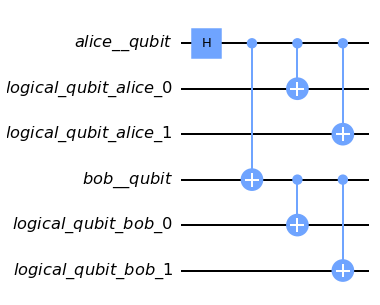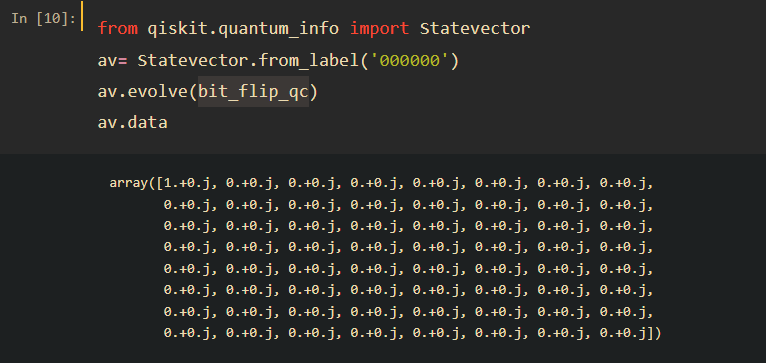I was trying to implement a three-qubit bit-flip code for shared entangled state. I was curious to analyze this mathematically, but the problem is I can't calculate the statevector after encoding. Here is the circuit:

I used Qiskit to calculate the statevector, but it turns out to be 0's for every qubit. I am very confused because I don't know if this is valid or not!
Could you please guide me a bit? Also, should this circuit have higher fidelity? Please comment on this as well.


bit_flip_qc. $\endgroup$